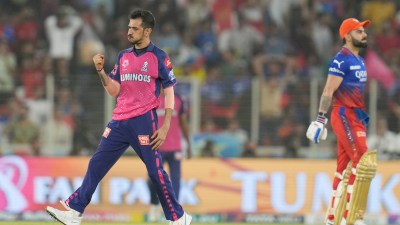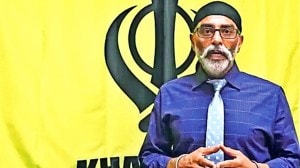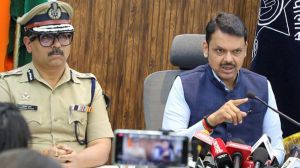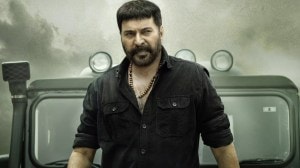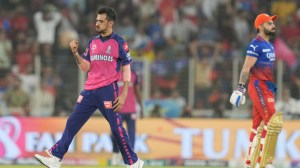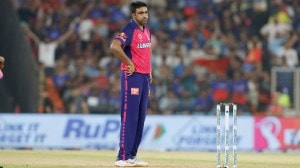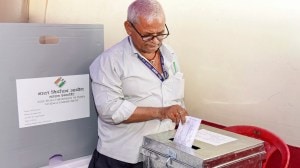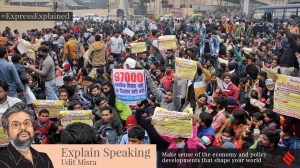- India
- International
Putin has replaced Russia’s Defence Minister Sergei Shoigu: What does this mean?
The decision was not taken on a whim, and it is not a demotion for Shoigu. The Russian President is probably tweaking his policy to align better with the current situation of the war against Ukraine
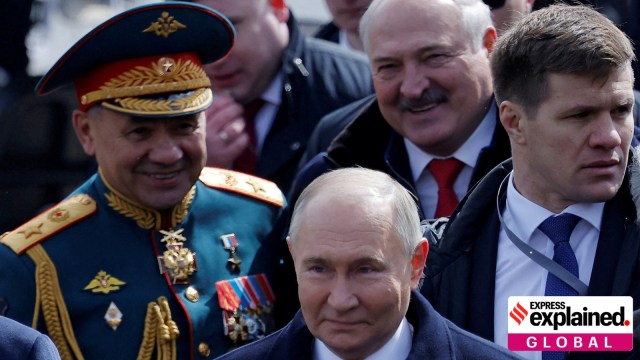 Participants, including Russian President Vladimir Putin, Defence Minister Sergei Shoigu and Belarusian President Alexander Lukashenko, attend a military parade on Victory Day, which marks the 79th anniversary of the victory over Nazi Germany in World War Two, in Red Square in Moscow, Russia, May 9, 2024. REUTERS/Maxim Shemetov/File Photo
Participants, including Russian President Vladimir Putin, Defence Minister Sergei Shoigu and Belarusian President Alexander Lukashenko, attend a military parade on Victory Day, which marks the 79th anniversary of the victory over Nazi Germany in World War Two, in Red Square in Moscow, Russia, May 9, 2024. REUTERS/Maxim Shemetov/File PhotoRussian President Vladimir Putin has removed his long-standing ally Sergei Shoigu as the country’s Defence Minister and appointed him Secretary of the Security Council. Andrei Belousov, an economist and Russia’s First Deputy Prime Minister, will replace Shoigu.
The appointments are the biggest reshuffle of Putin’s security officials in more than a decade. While Shoigu had been Defence Minister for 12 years, the man he has now replaced at the Security Council, Nikolai Patrushev, had been in the post since 2008.
The shake-up has come days after Putin began his fifth term as Russia’s President, and as Russian forces continue to gain ground in Ukraine. Here is what the changes in Putin’s cabinet mean.
But first, who is Sergei Shoigu?
Shoigu, 68, is Russia’s longest-serving minister. His rise began in 1994 when he was appointed Emergency Situations Minister in the early years of President Boris Yeltsin’s administration. He quickly became popular as “he raced around the country to deal with disasters ranging from plane crashes to earthquakes”, according to a report by France 24.
Shoigu remained in that position after Putin came to power and right up to 2012, when he was made governor of the Moscow region. Soon afterward, as the country’s Defence Minister got embroiled in a corruption scandal, Shoigu was appointed to the post, and was tasked with modernising the Russian forces.

As Defence Minister, Shoigu oversaw the Russian annexation of Crimea in 2014, and the intervention in Syria in 2015, which helped President Bashar al-Assad stay in power. He has overseen the invasion of Ukraine since February 2022.
Shoigu reportedly shares a close relationship with Putin, and has often gone on hunting and fishing trips with the President in Siberia.
And who is Andrei Belousov?
Like Shoigu, First Deputy Prime Minister Belousov too, is an old Putin loyalist who graduated from Moscow State University’s Faculty of Economics in 1981. Belousov does not have a background in Russia’s armed forces.
In 2000, Belousov became a non-staff adviser to the Prime Minister of Russia. Six years later, he was made Deputy Minister in the Economy Ministry. Between 2008 and 2012, he served as Director of the Department for Economics and Finance — this is also the time when Putin himself chose to serve as Prime Minister while Dmitry Medvedev was President.
In 2012, Belousov was made Economics Minister. From 2013 to 2020, he served as an adviser to the Russian President. In 2020, he was made First Deputy Prime Minister.
What does the reshuffle mean?
Nandan Unnikrishnan, Distinguished Fellow at Observer Research Foundation and one of India’s foremost experts on Russia, said the decision was likely not made on a whim.
“Putin does not like changing personnel. Over the years, very few ministers have been changed… There must have been some specific calculations within the leadership of Russia… This [the reshuffle] must have been something he [Putin] thought through and must have consulted others, including Patrushev and Shoigu themselves,” Unnikrishnan told The Indian Express.
One reason for Shoigu’s transfer could be the mounting pressure on him. Most recently, his deputy, Timur Ivanov, was arrested on charges of bribery. Last year, Yevgeny Prigozhin, chief of the mercenary Wagner Group, had accused Shoigu of military incompetence and corruption. Prigozhin had rebelled in June, seizing the military headquarters in Rostov-on-Don and beginning an advance with his troops towards Moscow. Although he called off his march soon, and was suspiciously killed in a plane crash two months later, the episode undermined Shoigu’s authority.
The Defence Minister had earlier come under fire in 2022 after the Russian military was forced to temporarily retreat at some places against the Ukrainian forces.
So is this a demotion for Shoigu?
No, it is not, Unnikrishnan said. Shoigu will continue to have a direct line to Putin, and will be only answerable to the President. He will also be Deputy President of the Military-Industrial Commission, and will head the Federal Service for Military-Technical Cooperation (FSVTS), which is responsible for military hardware dealings with other countries.
“Putin could have felt that it is time to remove his friend (Shoigu) from the line of fire because things were sort of snowballing,” Unnikrishnan said.
And what does Belousov’s appointment indicate?
Belousov’s placement as the new Defence Minister indicates the changing realities of Russia’s war against Ukraine. For Moscow, the battle has reached the level of attritional warfare and Belousov, an economist, can help make it more efficient.
“Belousov is a technocrat, a pure economist, who has been for many years one of the main advisers to Putin on economic affairs. He is a statist, a person who believes that the state has a role to play in the economy and should spend money on infrastructure, etc. So, he is, in a sense, the right person to bring in whatever changes are required in the Ministry of Defence to adjust to the new realities,” Unnikrishnan said.
More Explained
Must Read
EXPRESS OPINION
May 24: Latest News
- 01
- 02
- 03
- 04
- 05


